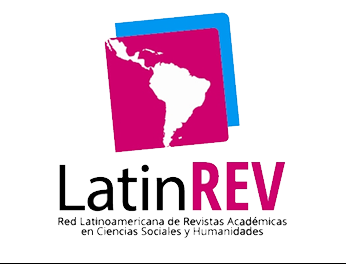Mitos en la investigación cualitativa
Resumen
Se examinan cuatro mitos que se encuentran a menudo dentro de la investigación cualitativa y que tienen el potencial de distorsionar los resultados del esfuerzo y de la efectividad de los investigadores. Estos mitos deben ser deconstruidos y reemplazados por sus realidades.
Descargas
Citas
Athanasiou, T., Debas, H. y Darzi, A. (Eds.). (2010). Key topics in surgical research and methodology. Berlín: Springer-Verlag. DOI: https://doi.org/10.1007/978-3-540-71915-1
Bloor, M., Fincham, B. y Sampson, H. (2007). QUALITI (NCRM) commissioned inquiry into the risk to well-being of researchers in qualitative research. Recuperado de https://www.cardiff.ac.uk/socsi/qualiti/CIReport.pdf
Breen, R. L. (2007). A practical guide to focus-group research. Journal of Geography in Higher Education, 30(3), 463-475. https://doi.org/10.1080/03098260600927575 DOI: https://doi.org/10.1080/03098260600927575
Bryman, A. (2008). Social research methods (2a ed.). Nueva York: Oxford University Press.
Denzin, N. K. y Lincoln, Y. S. (Eds.). (2018). The SAGE handbook of qualitative research (5a ed.). Thousand Oaks, CA: Sage.
Dickson-Swift, V., James, E. L., Kippen, S. y Liamputtong, P. (2008). Risk to researchers in qualitative research on sensitive topics: Issues and strategies. Qualitative Health Research, 18(1), 133-144. https://doi.org/10.1177/1049732307309007 DOI: https://doi.org/10.1177/1049732307309007
Firestone, W. A. (1993). Alternative arguments for generalizing from data as applied to qualitative research. Educational Researcher, 22, 16-23. https://doi.org/10.3102/0013189X022004016 DOI: https://doi.org/10.3102/0013189X022004016
Flick, U. (2014). An introduction to qualitative research (5a ed.). Los Ángeles: Sage.
Gheondea-Eladi, A. (2014). Is qualitative research generalizable? Journal of Community Positive Practices, 14(3), 114-124.
Given, L. (Ed.). (2008). The SAGE encyclopedia of qualitative research methods (Vol. 2). Londres: Sage. DOI: https://doi.org/10.4135/9781412963909
Glaser, B. G. y Strauss, A. L. (1967). The discovery of grounded theory: Strategies for qualitative research. Nueva York, NY: Aldine.
Green, J. y Thorogood, N. (2014). Qualitative methods for health research (3a ed.). Londres: Sage.
Hadjistavropoulos, T. y Smythe, W. E. (2010). Elements of risk in qualitative research. Ethics & Behavior, 11(2), 163-174. https://doi.org/10.1207/S15327019EB1102_4 DOI: https://doi.org/10.1207/S15327019EB1102_4
Halkier, B. (2011). Methodological practicalities in analytical generalization. Qualitative Inquiry, 17(9), 787-797. https://doi.org/10.1177/1077800411423194 DOI: https://doi.org/10.1177/1077800411423194
Hays, D. G. y Singh, A. A. (2012). Qualitative inquiry in clinical and educational settings. Nueva York: The Guilford Press.
Heist, G. (2013). Five things that will become obsolete in MR sooner than you think. Recuperado de http://www.greenbookblog.org/2013/07/09/5-things-that-will-become-obsolete-in-mr-sooner-than-you-think/
Killian Branding. (2017). Are focus groups obsolete? Recuperado de http://www.killianbranding.com/whitepaper/are-focus-groups-obsolete/
Kitzinger, J. (1995). Qualitative research: Introducing focus groups. The British Medical Journal, 311, 299-302. https://doi.org/10.1136/bmj.311.7000.299 DOI: https://doi.org/10.1136/bmj.311.7000.299
Krueger, R. A. (2002). Designing and conducting focus group interviews. Recuperado de http://www.eiu.edu/ihec/Krueger-FocusGroupInterviews.pdf
Langer, J. (1999). 15 myths of qualitative research: It's conventional, but is it wisdom? Marketing News, 33(5), 13-14.
Lichtman, M. (2013). Qualitative research in education: A user’s guide. Thousand Oaks, CA: Sage.
Maxwell, J. A. y Chmiel, M. (2014). Generalization in and from qualitative analysis. En U. Flick (Ed.), The SAGE handbook of qualitative data analysis (pp. 540-553). Londres: Sage.
Meyer, J. (2000). Using qualitative methods in health related action research. The British Medical Journal, 320(7228), 178–181. https://doi.org/10.1136/bmj.320.7228.178 DOI: https://doi.org/10.1136/bmj.320.7228.178
Millward, L. (2012). Focus groups. En G. M. Breakwell, J. A. Smith y D. B. Wright (Eds.). Research methods in psychology (4a ed., pp. 411-438). Los Ángeles: Sage.
Morse, J. M. (2001). Are there risks in qualitative research? Qualitative Health Research, 11(1), 3-4. https://doi.org/10.1177/104973201129118867 DOI: https://doi.org/10.1177/104973201129118867
Neergaard, H. y Leitch, C. M. (Eds.). (2015). Handbook of qualitative research techniques and analysis in entrepreneurship. Northampton, MA: Edward Elgar. DOI: https://doi.org/10.4337/9781849809870
Onwuegbuzie, A. J. y Leech, N. L. (2009). Generalization practices in qualitative research: A mixed methods case study. Quality and Quantity, 44(5), 881-892. https://doi.org/10.1007/s11135-009-9241-z DOI: https://doi.org/10.1007/s11135-009-9241-z
Osborne, J. (Ed.). (2008). Best practices in quantitative methods. Thousand Oaks, CA: Sage. DOI: https://doi.org/10.4135/9781412995627
Payne, G. y Williams, M. (2005). Generalization in qualitative research. Sociology, 39(2), 295-314. https://doi.org/10.1177/0038038505050540 DOI: https://doi.org/10.1177/0038038505050540
Pfanner, E. (2006, January 2). Agencies look beyond focus groups to spot trends. New York Times. Recuperado de http://www.nytimes.com/2006/01/02/business/media/agencies-look-beyond-focus-groups-to-spot-trends.html
Polit, D. F. y Beck, T. C. (2010). Generalization in quantitative and qualitative research: Myths and strategies. International Journal of Nursing Studies, 47(11), 1451-1458. https://doi.org/10.1016/j.ijnurstu.2010.06.004 DOI: https://doi.org/10.1016/j.ijnurstu.2010.06.004
Sanjari, M., Bahramnezhad, F., Fomani, F. K., Shoghi, M. y Cheraghi, M. A. (2014). Ethical challenges of researchers in qualitative studies: The necessity to develop a specific guideline. Journal of Medical Ethics and History of Medicine, 7, 14.
Schelmetic, T. E. (2016). Is social listening making focus groups obsolete? Recuperado de http://www.madmarketer.com/topics/agency/articles/426047-social-listening-making-focus-groups-obsolete.htm.
Shadish, W. R., Cook, T. D. y Campbell, D. T. (2002). Generalized causal inference: A grounded theory. Boston, MA: Houghton Mifflin.
Stake, R. E. (2010). Qualitative research: Studying how things work. Nueva York: Guilford Press.
Suddaby, R. (2006). From the editors: What grounded theory is not. Academy of Management Journal, 49(4), 633-642. https://doi.org/10.5465/amj.2006.22083020 DOI: https://doi.org/10.5465/amj.2006.22083020
Trauth, E. M. (2001). Qualitative research in IS: Issues and trends. Hershey, PA: Idea Group. DOI: https://doi.org/10.4018/978-1-93070-806-8
Urquhart, C. (2013). Grounded theory for qualitative research: A practical guide. Londres: Sage. https://doi.org/10.4135/9781526402196 DOI: https://doi.org/10.4135/9781526402196
Urquhart, C. y Fernández, W. (2013). Using grounded theory method in information systems. Journal of Information Technology, 28(3), 224-236. https://doi.org/10.1057/jit.2012.34 DOI: https://doi.org/10.1057/jit.2012.34
Waller, V., Farquharson, K. y Dempsey, D. (2016). Qualitative social research: Contemporary methods for the digital age. Londres: Sage.











